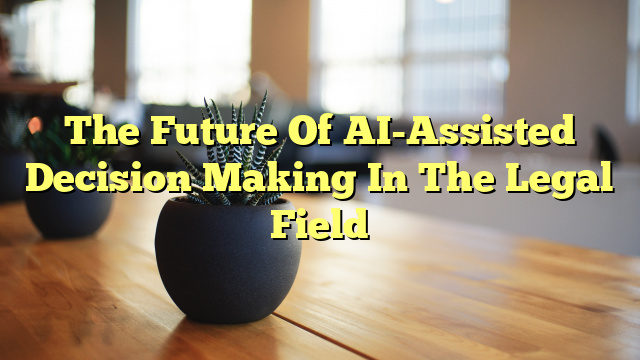There is no doubt that Artificial Intelligence (AI) and predictive analytics are changing the legal landscape. AI has already been utilized in legal research, contract analysis, and due diligence. Although AI is still in its early stages, it is rapidly expanding into many areas of legal practice. The question is, what will the future of AI in legal practice look like?
What is the Future of AI in Legal Practice?
AI in legal practice will continue to expand and develop. AI can be used to automate certain tasks, such as document review, that are labor-intensive and time-consuming for lawyers. AI-based contracts can also be used to streamline the process of creating, negotiating, and executing contracts. AI is also being used to analyze large amounts of data to provide insights into legal trends and cases. This can help lawyers to better understand the likely outcomes of cases and develop strategies accordingly.
What is the Future of AI and Predictive Analytics in Law?
The use of AI and predictive analytics in law will continue to expand as technology advances. Predictive analytics can be used to identify patterns in legal cases and draw conclusions about the likely outcomes of a case. This type of analysis can be used to make decisions about legal strategy and develop more effective arguments. AI can also be used to provide legal advice by using natural language processing to understand the context of a legal question and provide advice.
Can an AI Give Legal Advice?
The short answer is yes, AI can provide legal advice. AI-based legal advice systems are being developed that can analyze data and provide insights to assist in the decision-making process. However, AI is not yet sophisticated enough to replace human lawyers. AI systems are still limited in their understanding of the nuances and complexities of legal matters.
Why Can’t AI Replace Lawyers?
AI cannot replace lawyers because it lacks the ability to understand the complexities of law and the nuances of a legal argument. AI can provide valuable insights and advice, but it cannot make decisions or provide legal advice on its own. AI is also limited in its ability to recognize and interpret subtle clues in a legal matter. Therefore, while AI may be able to assist in certain aspects of legal practice, it is not yet capable of replacing human lawyers.
Conclusion
AI is already having a major impact on the legal profession and this impact will only increase as technology advances. AI can be used for tasks such as document review and contract analysis, as well as for providing insights into legal trends and cases. AI can also provide legal advice, although it cannot yet replace human lawyers. As AI technology continues to develop, it will become an increasingly important tool for legal practitioners.

